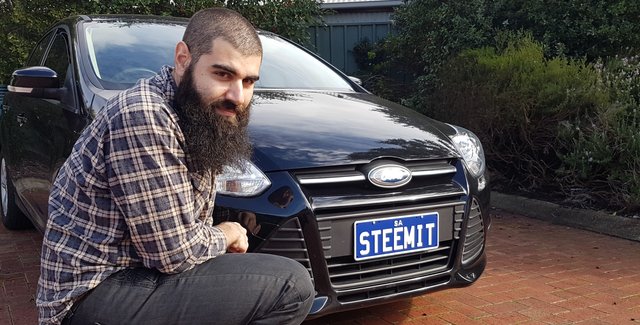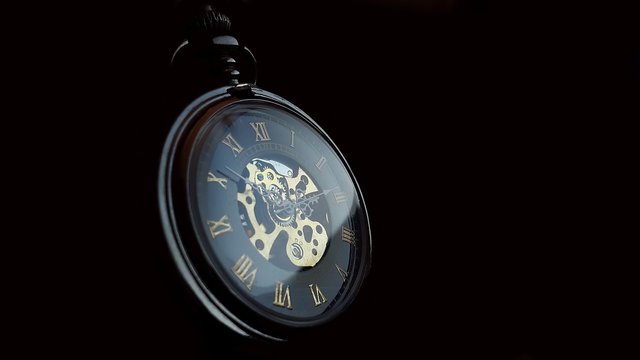How long is now?
Time is a fascinating thing. It is comprised of past, present, and future. How long is the present, though? How long is "now"?
Time is typically conceived to be a linear device that stores events, which can also be called "moments". It is comprised of past, present and future, which cannot occur at the same time. Paul Ricoeur stated:
'time has no being since the future is not yet, the past is no longer, and the present does not remain'
The present is now. Now is a word. Now is the thought you're having right now. But how long is it? Googling "How long is Now?" Posits that it might be 2-3 seconds in length. I think that now is an ever fleeting moment, gone as soon as we can comprehend its existence. My feeling is that now is something that is an ephemeral concept, forever fleeting, and something that can never be captured.
The Polish poet, Wislawa Szymborska, put this very simply:
'When I pronounce the word future, the first syllable already belongs to the past.'
Look up, those words are now in the past. But, it is still "now". It's always now, but how can you depict it? You can capture "now" in a photograph. A portion of "now"; a slice of time, 1/100th a second of light, of a scene, in a specific location, or, if you're doing long exposure photography, 10, 25, 30, or even longer becomes the captured "now".
Is now something that is mutable? "Now", in a photograph, for example, can capture multiple "moments".
If you consider "now" as brain activity, from stimuli to thought, or perception of that stimulus, that's about 200 milliseconds, according to this article. Again, if you look at it from a physical universe side of things, its 10^-43 seconds. (The "amount of time it takes for a photon to do stuff")
I don't want to talk about how complicated physics can get, and whether things are discrete or linear. I remain fascinated by the concept of "now", the "present" and the most important question of all; does our cognition cause each of these things to be different for everyone, with our unique experiences and atomic make-up altering our perception of "now"?
The length of "now" depends on what you're observing and experiencing. If you're observing an event, like toast falling from a plate to the floor; that's a slice of time, and comprises of the bizarre concept known as "now". Each moment as the toast tumbles towards the ground, rotates, and inevitably lands buttered side down is also "now". So is your despair at the toast landing exactly as you'd expect.
Or, that moment another vehicle smashes into yours, because it ran a red light. That's a short, sudden "now"; but capture it on a high speed camera; and its a scrape, an impact, blunt force, its still trauma. The "now" is mutable, and suits its need based on the circumstances which it contains, and how they are presented / interpreted. Its a frustrating concept, and one that will continue to keep me awake at night.
This is the second post in a series on time; in which I am exploring profound things in my mind. Thank you for coming along for the journey.


Very fascinating topic that I hope you continue working about. I will check out your other article now. I try to meditate and live in the now or present.
Also have you heard of the 13 Moon Calendar and the Law Of Time?
According to theoretical physics, time as such does not exist, or rather is an illusion generated by limits of causality and locality. We often conceptualize spacetime as a linear bar upon which we "move forward," but spacetime event as such is the entire line. The "movement" is an illusory consequence of the limits of information transfer constant "c" upon our mind. I have even encountered hypothesis that posit that "causality" is also an illusion and the only aspect of reality is locality.
I think there is a new book on time by a journalist, who amusingly thought to research a "light" topic for his next article. You are absolutely correct in the conclusion that time is not defined, understood, or proved; yet, no sane man would declare that time does not exist. The paradox of life . . .
There's also the view that time as a concept is only possible because we as beings believe it to be a thing.
Would 'atoms' exist if we hadn't defined them as such?
Language, and our being here to observe the state of things irrevocably alters them through the mere process of observation.
Very good post ! I'm going to read the other in this series. Now following.
Thank you! :) I could write about this stuff literally forever. There's so much about time to fathom. The fact that language makes it even more challenging to describe makes it more fun to write about, and discuss.
but how do you find the time?
lol
upvoted! I like your views of time. Anyone who says he knows what time is all about, doesn't know it at all. If you accept that you don't know it, you know it ;). So just let me play around with it. I have some similar ideas in mind that "now" is always and forever. There is no future and there is no past. Past is just an event which is happening and we can access in the current "now" dimension. Future is not accessible in the now but in my opinion it happens parallel in a different dimension. I believe that time does exist in terms of dimensional depth but not on the linear scale as most of us have pictured it. Now is always
Put your hand on a hot stove, a second feels like an hour.
Put your hand on a hot woman and an hour feels like a second.
supercool! I will get a steemit custom license tag some day!
The trillion year question: is there an atom of time?
If you perceive "now" from a more philosofical point of view instead of a mathematical one, you could say that now lasts eternally: now is always now.